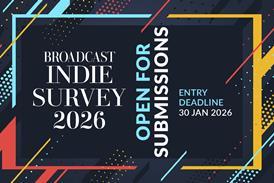Rachel Corp flags concern of faked imagery emerging during election moratorium
ITN boss Rachel Corp has warned of the “danger” that AI fakery could affect the election at times when broadcasters would be powerless to contradict it.
Speaking during a session about journalism in the AI era at the Deloitte and Enders Media & Telecoms 2024 and Beyond conference, Corp expressed concern that a fake image or video of politicians might emerge during the moratorium on election coverage on polling day – the period in which broadcasters are forbidden from airing discussion of election issues while polls are open.
If that were to happen, she said, broadcasters would not be in a position to factcheck the content immediately.
“If something emerges [during the moratorium] of Rishi Sunak high-fiving Vladimir Putin and that’s spreading, we couldn’t counter that in the normal way we usually would in our bulletins,” she said. “There is a danger there; there is not that instant where we could come in and counter it.”
Corp added that deep fake images can potentially damage brands, revealing that ITN has already encountered deep fake images of its presenters, posing a threat to the news organisation’s reputation as a source of trust and impartiality.
“We’re also worried about shallow fakes, where it’s not a totally fake image but it might be that someone who was smiling is now scowling, and what that can do to the narrative,” she said.
The ITN chief opened up about the company’s partnership with OpenOrigins to protect the company’s historic archive against AI threats. ITN will use OpenOrigins technology to validate every item in its archive and secure it on a blockchain database. This will ensure that every piece of ITN content, both future and past, will have proof of originality.
“It’s a way of dipping our toe in the water safely,” she said. “We know who we are working with, what the outcomes will be and it’s with a small British company rather than one of the big tech companies.”
Corp was also optimistic about the future of journalism, arguing that AI can’t replace the human element of news coverage and that is the factor that viewers engage with.
“Our most impactful content is still eyewitness journalism,” she said. “When you go in with the Trump supporters into [the Capitol], where you go and sit in somebody’s flat where they’re having a terrible time – AI doesn’t replace that. We watch that being consumed in vast numbers and that people want it.”




























No comments yet